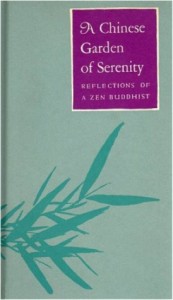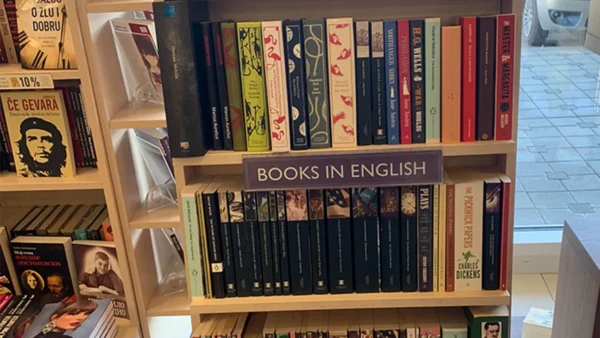 My friend Vishy gave me A Chinese Garden of Serenity for Christmas. It was such a nice surprise to open the package from India and see this book, because it showed so much thought. Vishy had seen my posts on the Tao Te Ching and the meditation retreat, and thought I’d like this book.
My friend Vishy gave me A Chinese Garden of Serenity for Christmas. It was such a nice surprise to open the package from India and see this book, because it showed so much thought. Vishy had seen my posts on the Tao Te Ching and the meditation retreat, and thought I’d like this book.
He was right.
This is one of those books that you can either read or dip into. It’s a collection of reflections and observations, each just a few sentences long, and there’s no logical order or progression that I can discern. Each reflection stands alone, and doesn’t build on the previous one or connect to the next.
What that means is that while you can read it straight through, as I did originally, you can also come back to it later, flip it open to a random page, and find something thought-provoking to read and reflect on.
For example, I just opened it on page 51 and found this:
To check the evils of time within their drift is like the dispersing of summer heat by the gentle breezes. To mingle with the vulgar and yet retain decency is like the reflection upon the fleecy clouds of pallid moonlight.
Many of the reflections follow this pattern. They deal with abstract ideas using strong visual images, and their meaning is not always obvious at first glance. They encourage you to think and interpret, rather than just giving easy-to-follow rules.
The book was written some time around the year 1600, and is apparently a synthesis of important concepts from Zen Buddhism, Taoism and Confucianism. I like this approach, and I think it’s why I’m often drawn to books like this. I don’t believe that any religion or philosophy has a monopoly on the truth, and so I tend to act as a spiritual magpie, picking the shiniest, most interesting ideas and putting them together into a personal philosophy that, while it may not be entirely solid or coherent, at least helps me get through the day.
So when the author of a book has done some of that legwork for me, it’s a bonus. I don’t agree with all of the aphorisms here, but I agree with or get value from enough of them that I’ll keep this book close by, and dip into it regularly for shiny philosophical gems.




There are 7 comments
This sounds terrific. I have similar views on picking through various religions and philosophies for truth and useful concepts. I really like that quoted passage.
Ah, good to meet a fellow magpie, Brian! Yes, I think you’d like this. It’s quite old, so I don’t think it’s in print any more, but I’m sure you could find a second-hand copy. Thanks for stopping by!
Beautiful review, Andrew! So glad and happy to know that you liked it 🙂 I loved that passage you have quoted – it is so beautiful and thought-provoking. I like the fact that we can dip into the book into a random page and read a beautiful and insightful passage. I liked very much what you said about being a spiritual magpie 🙂 Hope you enjoy dipping into the book and re-reading its beautiful lines.
Thanks Vishy! It was a great gift. I’ll definitely be doing a lot more dipping 🙂
Sounds like a wonderful book, and what a lovely gift from your friend!
It’s a good one, Stefanie. Yes, I think books can be the best gifts, because if they’re carefully chosen, they tell you what a person knows about you and what they think of you. Vishy and I have never met in person, but his gift showed me that he knows me better than some real-life acquaintances!